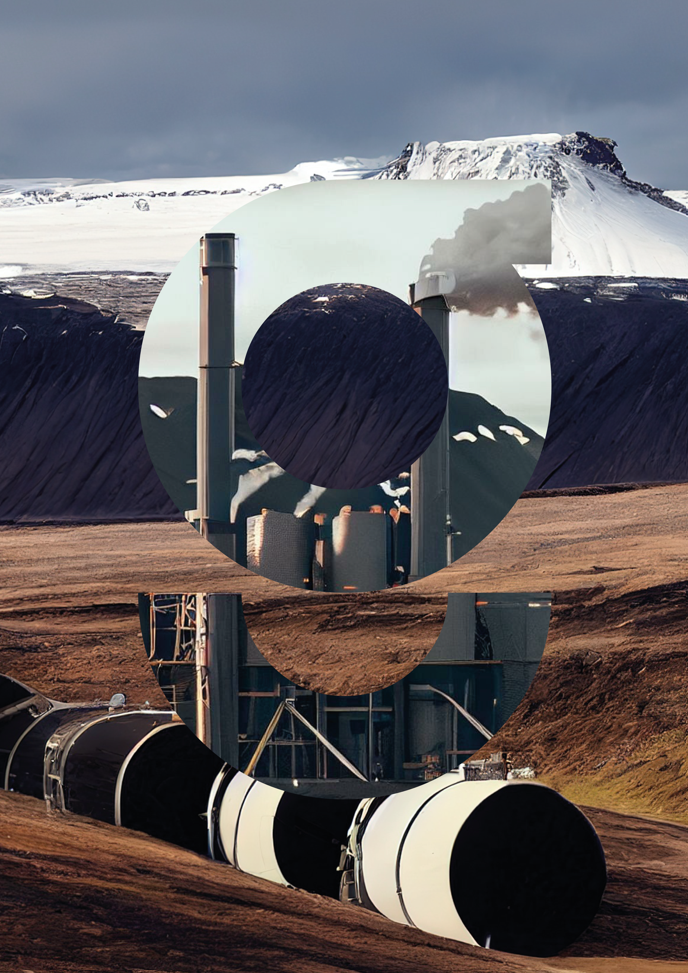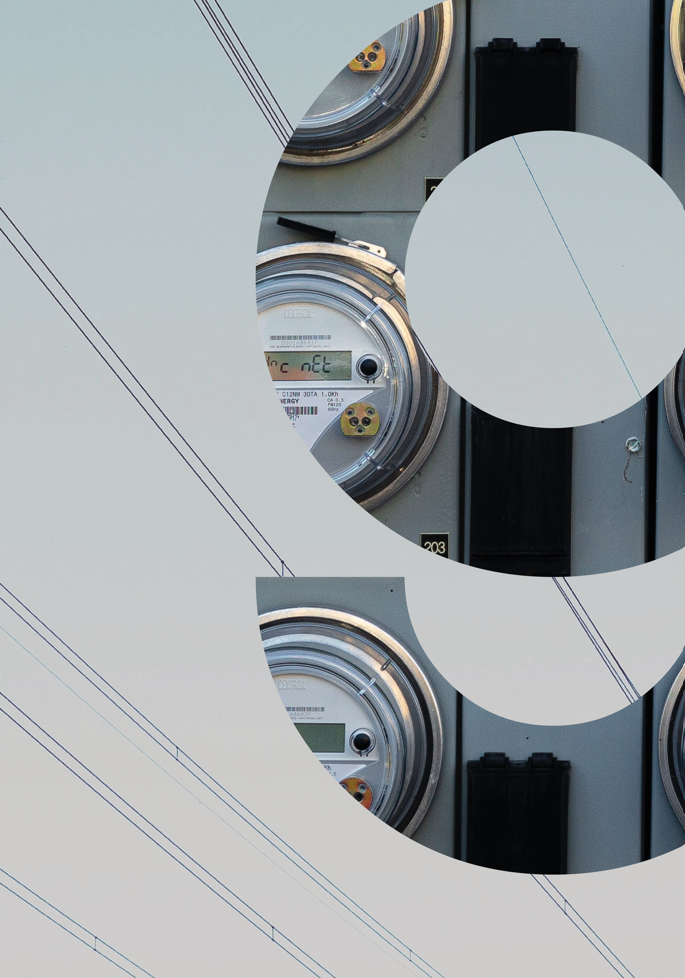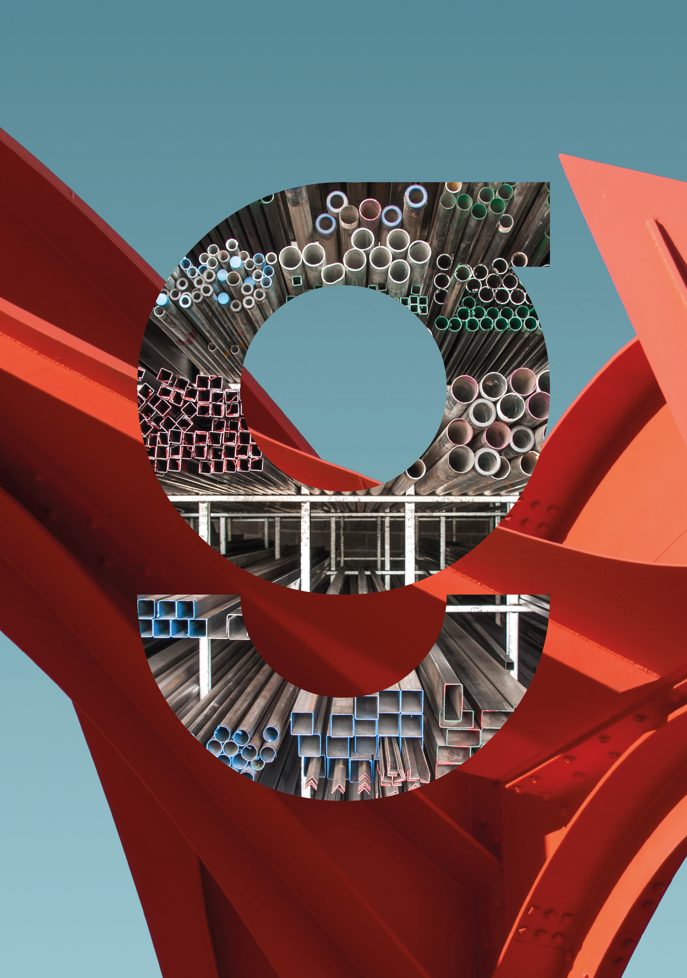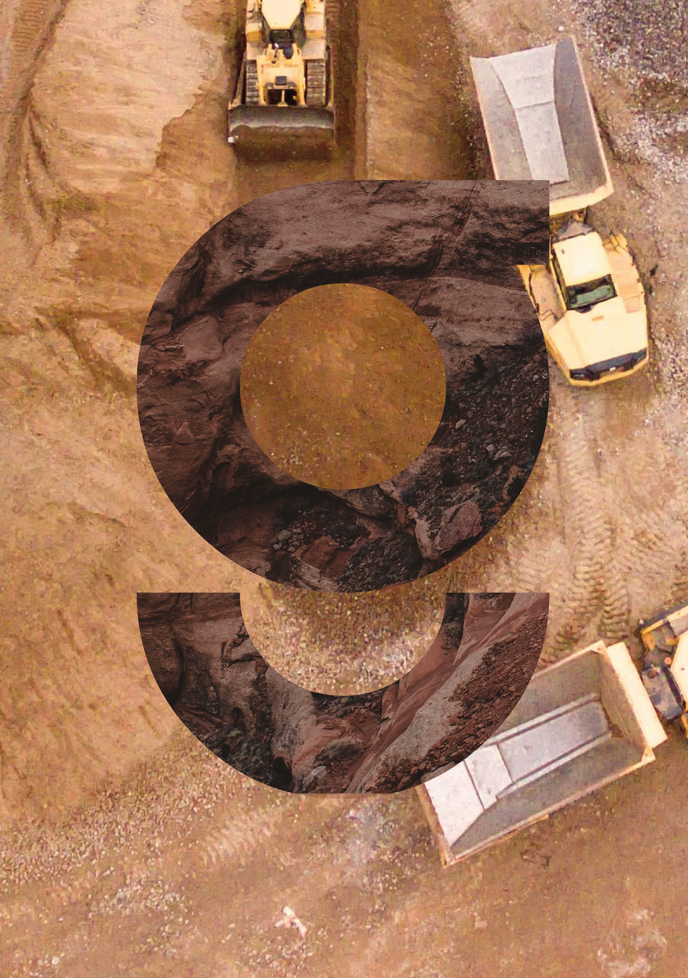Energy sector
In order to limit warming to 1.5Cº, a global decarbonisation rate of 15.2% year-on-year is needed. In 2021, that rate was just 0.5% – the lowest level for two decades. Bringing together a wide range of stakeholders from across the energy value chain, the GET Congress and Exhibition will emphasise that the desired decrease in emissions does not inevitably translate to an impediment to economic progress by spotlighting prominent alternative energy sources such as LNG, Renewables and Nuclear.
Reasons to sponsor and exhibit at GET:
- Showcase your role in the energy industry’s transition to cleaner energy sources, including LNG, wind, solar, hydroelectric, and nuclear power, while ensuring reliability and energy security for carbon-intensive manufacturing sectors.
- Highlight your company’s ability to provide a stable and dependable energy supply to support manufacturing processes and reduce carbon emissions.
- Showcase advanced technologies and grid management systems that ensure reliable access to energy for manufacturing sectors, even as the energy mix shifts.
Reasons to speak at or participate at GET:
- Emphasise your commitment to sustainability and its role in supporting carbon intensive manufacturing sectors and other industries as they work toward reducing their carbon footprint and transitioning to cleaner energy sources.
- Highlight the industry’s commitment to achieving universal energy access while transitioning to clean energy.
- Showcase efforts to ensure that energy access is extended to underserved regions, including those with carbon-intensive manufacturing facilities.
- Emphasise innovative financing models and collaborative partnerships to bridge energy access gaps for manufacturing sectors and vulnerable communities.
Low-carbon solutions
In addition to actively supporting the road to decarbonisation through alternative fuels, the GET Congress and Exhibition will also focus on supercharging other key technologies by highlighting their potential roles in tackling emissions across a wide spectrum of industries – such as the production of cement, iron and steel or chemicals and synthetic fuels. These include, CCUS, biofuels and hydrogen.
Reasons to sponsor and exhibit at GET:
- Highlight the industry’s ability to provide low-carbon supply chain solutions that enable carbon-intensive manufacturing sectors to reduce their environmental impact.
- Emphasise the benefits of using low-carbon hydrogen, biofuels, and nature-based solutions to decrease carbon emissions in manufacturing processes.
- Illustrate collaborative efforts with carbon-intensive manufacturing sectors, emphasising successful partnerships that reduce emissions, improve sustainability, and achieve shared environmental and corporate social responsibility goals.
- Highlight efforts to make low-carbon solutions more cost-competitive and scalable, demonstrating how these technologies and approaches can be integrated into manufacturing processes without compromising financial viability.
Reasons to speak at or participate at GET:
- Present the industry’s role in providing carbon mitigation and offset opportunities through
CCUS, direct air capture, and nature-based solutions. - Showcase how these technologies and approaches can help carbon-intensive industries meet emissions reduction targets while fostering environmental sustainability.
- Emphasise alignment with environmental regulations and sustainability goals, showcasing how the industry helps carbon-intensive sectors comply with evolving environmental standards and secure financial incentives to promote sustainability.
Finance
As an essential lever for change on the path towards net zero and its role within the global economy, engaging the financial industry can provide vital access to both capital and talent into investment in innovation, as well as its close relationships with highly influential stakeholders. Participants from the finance sector will include:
-
Banks
-
Venture capitalists
-
Private equity
-
Sovereign wealth funds
Reasons to sponsor and exhibit at GET:
- Showcase sustainable investment portfolios that align with the energy and manufacturing sectors’ low-carbon and sustainability goals. Highlight the industry’s commitment to financing projects and businesses that support clean energy, energy efficiency, and emissions reduction.
- Highlight the industry’s expertise in identifying and financing high-quality clean energy and sustainable projects. Illustrate successful investments in renewable energy, energy efficiency, carbon capture, and other sustainable sectors.
- Present innovative financial products and services designed to support the energy transition, such as green bonds, sustainability-linked loans, and ESG investing.
Reasons to speak at or participate at GET:
- Discuss the financial implications of this transition, including the potential devaluation of stranded assets, and ensuring that investment strategies align with environmental and sustainability goals.
- Highlight the need for effective risk assessment and diversification strategies. Find viable investment opportunities in the renewable energy, energy efficiency, carbon capture, and other sustainable sectors.
- Build relationships with key players in the clean energy sector and stay informed about market developments.
- Stress the industry’s dedication to transparency and accountability, including adherence to environmental and social impact reporting standards. Highlight the use of data and analytics to measure and verify the environmental and social impact of investments.
Utilities
Secure, reliable and affordable power is the backbone of society and fundamental for continued economic growth. The journey to net zero for the power sector is particularly relevant, especially since its decarbonisation could facilitate the transition for other sectors that are electrified, aim to electrify, or are in the process of doing so. As such, the coordination between these industries on mutually beneficial low-carbon strategies can be a central point of cooperation during the GET Congress and Exhibition.
Reasons to sponsor and exhibit at GET:
- Showcase the sector’s investment in grid modernisation and reliability to adapt to the
changing energy landscape, including the integration of renewable energy sources and
distributed energy resources. - Highlight the use of smart grid technologies, energy storage solutions, and grid infrastructure enhancements to ensure the grid can accommodate fluctuating power generation and changing demand
- Highlight the sector’s commitment to decarbonisation and emissions reduction,
showcasing its investments in low-carbon energy sources and carbon capture and storage
(CCS) technologies. - Showcase collaborative efforts with the energy and manufacturing sectors to develop and
implement sustainable energy solutions, including clean energy procurement, energy efficiency programmes, and emissions reduction strategies.
Reasons to speak at or participate at GET:
- Share project funding and investment priorities with attendees from across the international finance sector.
- Meet with experts from the oil and gas and renewables industries to discuss joined up, longer term, lower carbon intermittency solutions.
- Present initiatives that address climate change concerns and emphasise the utility sector’s role in meeting environmental regulations and emissions reduction targets.
- Emphasise the utility sector’s adherence to regulatory and policy requirements related to
energy transition, climate goals, and environmental standards.
Cement
Concrete is the most used man-made material on the planet, and is crucial for the construction of the world’s infrastructure. A carbon intensive process, cement production is responsible for 8% of global CO2 and as a result, the industry is increasingly singled out not only by the public, but also by investors and governments, who are demanding environmental impact assessments before committing funding. The cement sector brings opportunities for collaboration and partnerships with companies from other industries, and in particular those targeting investment in new technologies to recycle and decarbonise construction, demolition waste and materials. Carbon Capture, Utilisation and Storage (CCUS) is a key technology to decarbonise cement production.
Reasons to sponsor and exhibit at GET:
- Promote carbon capture and storage technologies in cement plants to capture
and reduce CO2 emissions. - Present energy efficiency initiatives and advancements in the industry, including waste
heat recovery systems and energy-efficient kiln-designs. - Showcase examples of cement plants that have transitioned to renewable energy.
- Showcase partnerships and collaborations with the energy and manufacturing industries
to provide low-carbon solutions and materials for sustainable infrastructure development.
Reasons to speak at or participate at GET:
- Meet the architects of some of the world’s largest and most ambitious carbon capture and storage (CCS) projects and learn how CCS technologies are lowering carbon outputs in the hard to abate industries.
- Join senior leaders from across industries, including the mining and minerals sector, to
discuss holistic and full value chain approaches to decarbonisation. - Have your say on the need for policymakers and energy industry groups to support higher-capacity, lower cost biofuels, and aid progress towards a net zero cement industry.
Steel
An industry that both forms the backbone of our modern society and presents a colossal decarbonisation challenge. Relying on high-temperature processes that are difficult to electrify, the steel industry is striving to find the right partners and fuels to lead its low-carbon future. Steel is also a foundational material in various key technologies that will help deliver decarbonisation, including electric vehicles and wind turbines, as well as advanced manufacturing processes.
Reasons to sponsor and exhibit at GET:
- Highlight your organisation’s commitment to reducing carbon emissions by transitioning to low-carbon and carbon-free steel production methods.
- Feature cutting-edge technologies and processes that enable the steel industry to reduce its environmental footprint while maintaining cost competitiveness.
- Illustrate how the steel industry can play a vital role in supporting the energy transition by
providing essential materials for renewable energy infrastructure including wind turbines,
solar panels, and transmission infrastructure.
Reasons to speak at or participate at GET:
- Connect with all sectors involved in the steel sector supply chain to discover sustainable
solutions from the mining, manufacturing, and transport sectors - all looking to decarbonise their businesses. - Join discussions that span the value chain, covering Scope 1, 2 and 3 emissions.
- Discuss the critical need for the steel industry to access sustainable financing options to support its transition to low-carbon and carbon-free production methods.
Mining
While decarbonisation in mining will largely be contingent upon electrification and renewables – a process that has its own, notable challenges – the sector also has a key role to play in the provision of materials and technologies needed to address climate change, including those used for wind turbines, solar and overall electrification. A focus on this industry is vital, in part because the burden on miners of transition metals will be enormous. They will be responsible for fuelling the transformation while investors understand how to deliver the support that the industry needs to do so.
Reasons to sponsor and exhibit at GET:
- Present the industry’s efforts to transition toward lower carbon and renewable energy sources for mining operations, such as LNG, solar, wind, and hydropower, to reduce carbon emissions.
- Demonstrate the development and use of clean energy infrastructure, including on-site renewable energy generation and battery storage solutions.
- Present efforts to create a circular economy within the mining sector, focusing on responsible material usage, recycling, and sustainable reclamation practices.
Reasons to speak at or participate at GET:
- Meet experts in the field of renewable and alternative energy, and innovators focused on the challenge of lower carbon energy optionality in the mining sector.
- Join senior leaders from hard to abate industries, including the cement sector, to discuss holistic and full value chain approaches to Scope 1, 2 and 3 emissions reduction.
- Highlight responsible and sustainable mining practices, including efforts to reduce the environmental impact of resource extraction and land reclamation.
Heavy-duty transport
and shipping
Transport, whether by sea, road or rail or air, is the backbone of trade and commerce, providing a vital service that facilitates global supply chains and moves populations around at scale. Responsible for 25% of global emissions, this essential sector plays an important role in the world’s pathway to net-zero. Advances in electrification and the developing hydrogen market have brought this ambition closer to reality but further innovation and expanded infrastructure are required to scale the transition. The GET Congress and Exhibition will prioritise the challenges of the transport sector, helping representatives to connect across industries and gain access to innovation to drive decarbonisation.
Reasons to sponsor and exhibit at GET:
- Showcase a range of low-carbon and zero-emission heavy-duty vehicles and equipment,
including trucks, hydrogen fuel cell buses, and advanced biofuel-powered machinery. - Highlight technological innovations and advancements that make these solutions cost-effective, efficient, and suitable for a wide range of applications in the energy and manufacturing sectors.
- Showcase cutting-edge battery technology for electric vehicles and energy storage solutions that cater to the heavy-duty sector’s unique requirements.
Highlight fuel-cell advancements, such as increased efficiency, extended range, and faster
refuelling times, for hydrogen-powered vehicles and machinery. - Highlight collaborations with energy and manufacturing sectors to provide integrated, sustainable solutions for energy storage, transportation, and machinery needs.
Reasons to speak at or participate at GET:
- Highlight advancements in fuel efficiency, emissions reduction, and the adoption of
alternative fuels, contributing to the broader energy transition goals. - Share innovations in heavy-duty transport technologies, including advancements in electric and hybrid vehicles, alternative fuels (such as hydrogen or biofuels), and smart transportation solutions.
- Advocate for supportive policies that facilitate the transition to cleaner and more sustainable transportation.
Chemical
The chemical industry is a key enabler of modern life, producing vital products, such as fertilisers, plastics and coatings for solar panels. The global plastic market is expected to expand at a compound annual rate of 3.7% between 2022 and 2030 whilst recycling plastic waste and investing in sorting and reprocessing facilities would deliver economic benefits of over £3bn across 25 years in the UK alone. The path to reducing emissions from this sector will mirror other industries, with a focus on the use of alternative feedstocks and process decarbonisation, presenting opportunities for cross sector collaboration.
Reasons to sponsor and exhibit at GET:
- Showcase the industry’s progress in developing low-carbon and sustainable chemical products, including bio-based chemicals, recyclable materials, and environmentally friendly fertilizers.
- Present innovative supply chain practices, such as bio-based feedstock sourcing, and demonstrate the availability of sustainable feedstock options to meet the needs of the energy and manufacturing sectors.
- Highlight successful energy-saving and emissions-reducing technologies and practices, including electrification, advanced catalysis, and carbon capture and storage (CCS) initiatives.
Reasons to speak at or participate at GET:
- Meet with leaders in carbon capture technologies to discuss approaches to lowering the emissions profile of existing feedstocks.
- Learn how peers across the hard-to-abate sectors are overcoming obstacles to funding and adopting lower carbon technologies.
- Explore the long-term potential of renewables as lower carbon sources of heat and power in manufacturing processes.
Start-ups
The energy transition will be driven by innovation. With thousands of new start-ups emerging around the world each year, the GET Congress and Exhibition will offer promising entrepreneurs and emerging companies a valuable platform to reinforce their potential for advancing sustainability and engineering ground-breaking decarbonisation solutions by connecting them with investors, partners and diverse stakeholders from a broad spectrum of industries and sectors.
Reasons to sponsor and exhibit at GET:
- Showcase the innovative technologies and solutions that your start-up offers to address
the energy transition’s challenges. - Emphasise how these innovations can contribute to emissions reduction, energy efficiency, and sustainability.
- Highlight any ground-breaking patents, proprietary processes, or unique approaches
that set your solutions apart from traditional energy practices. - Present examples of successful collaborations that have led to improved sustainability, emissions reduction, and operational efficiency for your partners.
Reasons to speak at or participate at GET:
- Highlight the agility and adaptability of your start-up, emphasising your ability to quickly
respond to changing market dynamics and evolving energy policies. - Showcase case studies or success stories that demonstrate how your start-up has effectively addressed the specific needs and challenges of the energy and manufacturing
sectors. - Illustrate your readiness to collaborate with established industry players, energy companies, and carbon-intensive manufacturing sectors.
- Emphasise the potential for win-win partnerships where your innovative solutions can benefit both your start-up and larger industry stakeholders.











